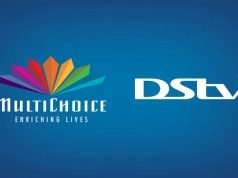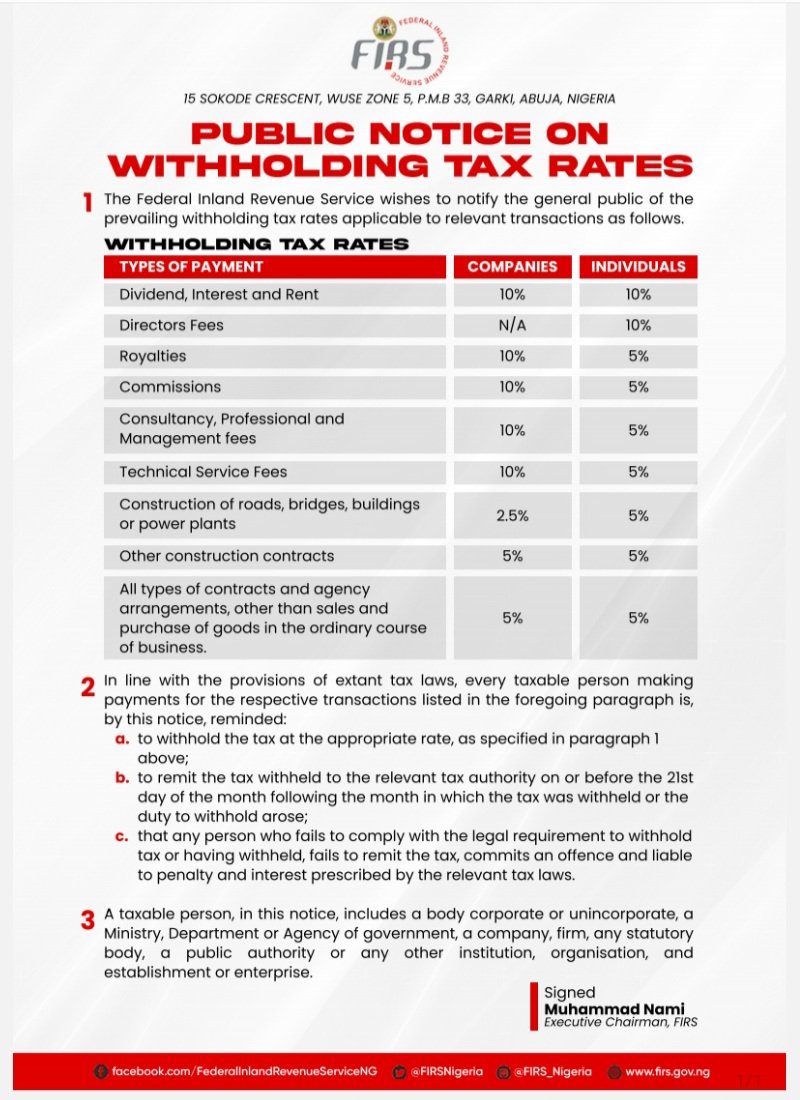 The Broadcasting Organisations of Nigeria (BON) and the Nigeria Elections Debate Group (NEDG) have committed the greatest self-deprecating blunder yet by selecting only five presidential and vice presidential candidates for their organised debates, regardless of whatever parameters were used. An otherwise engaging and illuminating episodic medium beamed on live television, for interrogating folks, who seek Nigeria’s presidency, has lost its gravitas on the altar of indiscretion and flawed decision.
The Broadcasting Organisations of Nigeria (BON) and the Nigeria Elections Debate Group (NEDG) have committed the greatest self-deprecating blunder yet by selecting only five presidential and vice presidential candidates for their organised debates, regardless of whatever parameters were used. An otherwise engaging and illuminating episodic medium beamed on live television, for interrogating folks, who seek Nigeria’s presidency, has lost its gravitas on the altar of indiscretion and flawed decision.
Indeed, in a situation of partisan frenzy, where bias is easily insinuated into political and election processes, it has become convenient for the vast majority of the presidential/vice presidential candidates, excluded from the rigorous intellectual intercourse, to accuse BON/NEDG of rigging the process against them. Such accusation is justifiable.
Clearly, this gaffe would impact voting-behaviours and choices in the impending presidential election. The BON/NEDG may have wittingly or unwittingly created a problem of perception for the over 30 other parties whose presidential and vice presidential candidates have been excluded from the debates.
Given the massive effort and resources that many of the parties and their candidates have invested in the presidential enterprise, it would be unfair for anybody to take actions that would undercut their profiles. But the organisers’ decision has subtracted from the profiles of the excluded candidates and their parties.
The idea of restricting the number of participants in a setting, where egalitarianism is the defining feature of democratic choice, was writ large and, therefore bruised the ethos of plurality of views that democracy espouses. It is thus inconceivable that the media, the fourth estate of the realm, would lend itself to an unconscionable abridgement of space and right of expression of political views that would guide popular choice(s).
That BON/NEDG caved in under the pressure of expediency to limit participation in the debate to five parties is evident but not salutary. Whether the pressure was internally or externally-induced, it does not matter as nothing can insulate the body against the charge of bias in the decision to construct a situation in which more than thirty political parties and their presidential/vice presidential candidates were whimsically rigged out of the debates.
Equity, equality and good conscience should have guided the platform’s decision-making to accommodate all and sundry in the 2018/2019 presidential and vice presidential debates. This is because the debates provide opportunities for Nigerians to assess the quality of the candidates. The vice presidential debate had already been held and televised live on December 14, 2018 while the presidential debate has been scheduled to hold on January 19, 2019.
If the organisers of the debates were considering the sheer number of the parties and the candidates as unwieldy, should they not have considered a series of debates, structured into different sessions? Having committed the egregious mistake, not only have they been exposed to public resentment, they have also heightened anxiety in political circles ahead of the 2019 poll.
The unfair parameters for choosing candidates for the debates cannot, therefore, escape essential indictment. It does not matter how brilliantly they are rationalized. If nationwide spread was to be the sole parameter, perhaps only the All Progressives Congress (APC) and the Peoples Democratic Party (PDP) would have been qualified to participate in the debate. But the task to rescue Nigeria is beyond spread that confers advantage on the duo.
Furthermore, if intellectual depth and capacity of candidates were to be the other considerations, so many candidates should have been qualified. This is the matrix that the organisers should have emphasized to enable the ventilation of plurality of ideas on how to build a better Nigeria. That the BON/NEDG qualified Professor Kingsley Moghalu of Young Progressive Party (YPP); Oby Ezekwesili of the Allied Congress Party of Nigeria (ACPN); and Fela Durotoye of the Alliance for New Nigeria (ANN) was also not redeeming.
The decision was, rather, indicative of how premeditative and restrictive the organisers set out to be. The prior knowledge of the public space exertions by the trio, no doubt, influenced BON/NEDG’s decision to be partial in a matter in which the nuances of all political interests should have been accommodated. Unfortunately, they have bungled it. Even the Independent National Electoral Commission (INEC) may not have been this brazen.
Again, had the BON/NEDG accommodated the presidential candidates of People’s Trust (PT), Mr. Gbenga Olawepo-Hashim; African Action Congress (AAC), Mr. Omoyele Sowore; Action Democratic Party (ADP), Engineer Yusuf Yabagi Sani and, Social Democratic Party (SDP), Mr. Donald Duke or Professor Jerry Gana, who are intellectually sound without the other seemingly unknown parties and candidates, they (organisers) would still have been deficient and biased.
But having rationally considered the entire field based on media reports, the presidential candidature of Olawepo-Hashim, in particular, has enjoyed increasing print and electronic media visibility, social media engagements and growing electoral value and popularity, resulting in critical endorsements and political alliances that approximate a third force in the 2019 presidential race. His late entry into the presidential race, first on the platform of the Alliance for New Nigeria (ANN), notwithstanding, he was able to give the party a cutting edge position.
Olawepo-Hashim came with the force of his progressive ideas and intimidating pedigree in student activism, pan-Nigerian democratic struggles- during which he put his life on the line- and robust political participation that saw to his emergence as the first National Publicity Secretary of the PDP. Jittery forces in power fractured the ANN but his faction, after electing him as the presidential candidate, sealed an alliance deal with People’s Trust (PT), resulting in his adoption as PT’s presidential candidate in the forthcoming election.
His choice of statesman and nationalist, Dr Arthur Nwankwo of the defunct Eastern Mandate Union, as a running mate, produced a balanced ticket in terms of synthesis of passion for nationalism and synergy of spirit for progressive ideas and ideals. In the labyrinth of the quest for a formidable and credible third force, Olawepo-Hashim has become a rallying point on the PT platform, inspiring and consummating strategic alliances and collaborations in episodic manifestations.
First to step down for him within his party was a veteran of presidential politics, Alhaji Ibrahim Iro Dan-Musa; followed by a presidential aspirant of the ADP, Mr. Mathias Tsado and the presidential candidate of the Alliance for Democracy (AD), Prince Eniola Ojajuni. AD has the historical distinction of being one of the three parties that were formed at the outset of the current Fourth Republic democracy. The structural expansion that has resulted from these alliances has been incredible, leading to PT’s solid structures and presence in no fewer than 28 states.
Besides, given the tenor of his electioneering – creating a 4-trillion dollar economy in ten years, building a better Nigeria, providing better life for rural poor, especially, women and youth, etc., Olawepo-Hashim has generated intense social media engagements, principally on Face book, displacing Atiku Abubakar and Muhammadu Buhari to the second and third places respectively.
Remarkably, his PT platform is next to the APC and the PDP in terms of sponsorship of candidates in the series of elections in 2019, surpassing in number candidates fielded by the YPP, ANN, ACPN and AAC put together. That makes PT the most formidable and attractive third force.
Both the platform and Olawepo-Hashim are sui generis in terms of their acceptability and popularity in the forthcoming general election. Therefore, in the final analysis, the BON/NEDG failed to do due diligence in foisting the fait accompli of a rigged debate on Nigerians. Whereas, it should have fairly accommodated all – that not being the case, the whole exercise of debating has become more notional than utilitarian in helping Nigerians and the electorate to make balanced and informed choices.
- Ojeifo, an Abuja-based journalist, contributed this piece via ojwonderngr@yahoo.com








